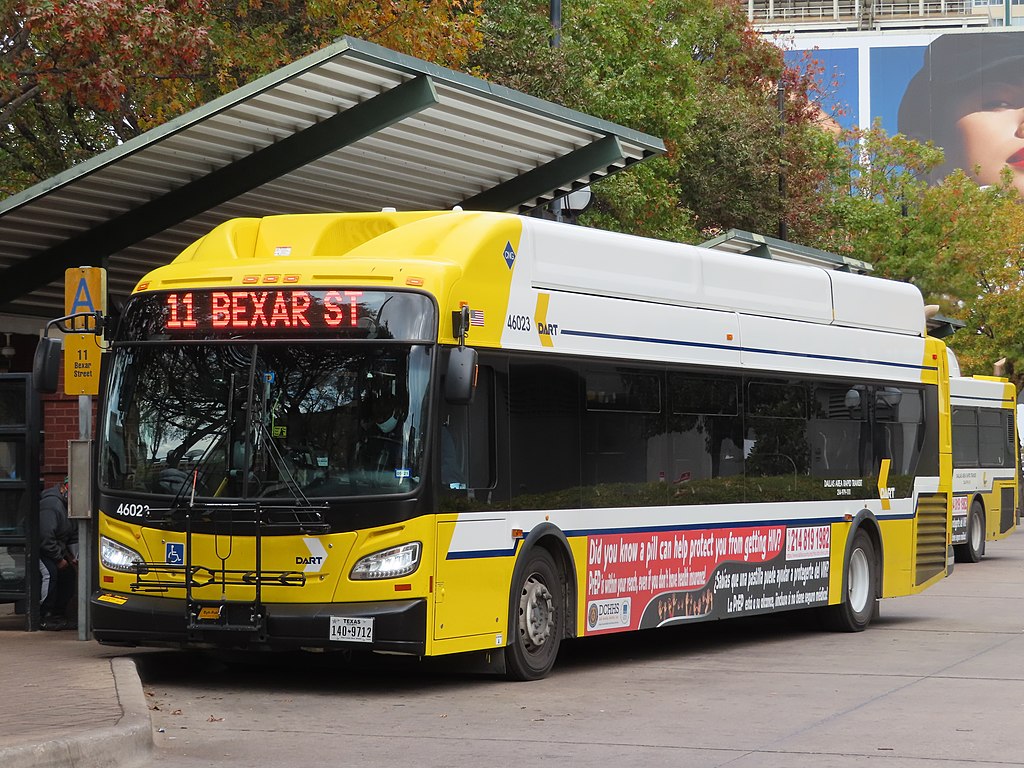The Dallas Area Rapid Transit (DART) Board of Directors adopted a variety of proposed service changes this week, amounting to some of the largest services changes in the transit agency’s 40-year history. The service changes come as the board attempts to resolve a dispute with a member city and will include reduced route frequency, increased fares and eliminated routes.
Seven routes across the DART service area will be eliminated. The frequency of fixed bus routes will be reduced from every 15 minutes to every 20 minutes. And the cost of a single-ride standard ticket will increase from $3 to $4. The proposed changes are scheduled to take effect in January 2026.
The changes were proposed as a means to resolve an ongoing dispute with the city of Plano, which has frequently expressed interest in reducing its tax contributions to the service. In 2023, the city paid more than $109.6 million to DART but only received $44.6 million back in services. Comparably, the city of Dallas contributed $407.8 million and received $690.5 million back in total service offerings.
These changes were drafted in March as part of the DART’s general mobility plan (GMP). As the plan launched, a bill filed by Rep. Matt Shaheen of Plano moved through the legislature. The bill, HB 3187, would allow each of the thirteen member cities to reduce their tax contribution by a quarter, resulting in billions of dollars in loss for the service.
Shaheen had filed similar bills in previous legislative sessions, but this version cleared the House Committee on Transportation, resulting in chaos in North Texas. Though the bill never made its way to the House floor, the awareness it raised was enough to make the DART board consider significant restructuring.
The GMP outlines the organization’s plans through 2027, just in time for the 90th Texas Legislative Session.
A common criticism of DART is that its small population of riders does not warrant the high service costs charged to member cities, but other critics highlight that significant reductions would immobilize the segment of the population who are reliant on DART for transportation.
The board scrapped a measure in the original proposal to reduce the service area and increase costs for paratransit services after community pushback raised concerns about the changes impacting the most vulnerable communities in the service.
Photo by Jason Lawrence from New York, CC BY 2.0 <https://creativecommons.org/licenses/by/2.0>, from Wikimedia Commons







